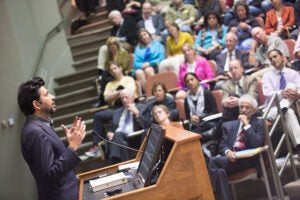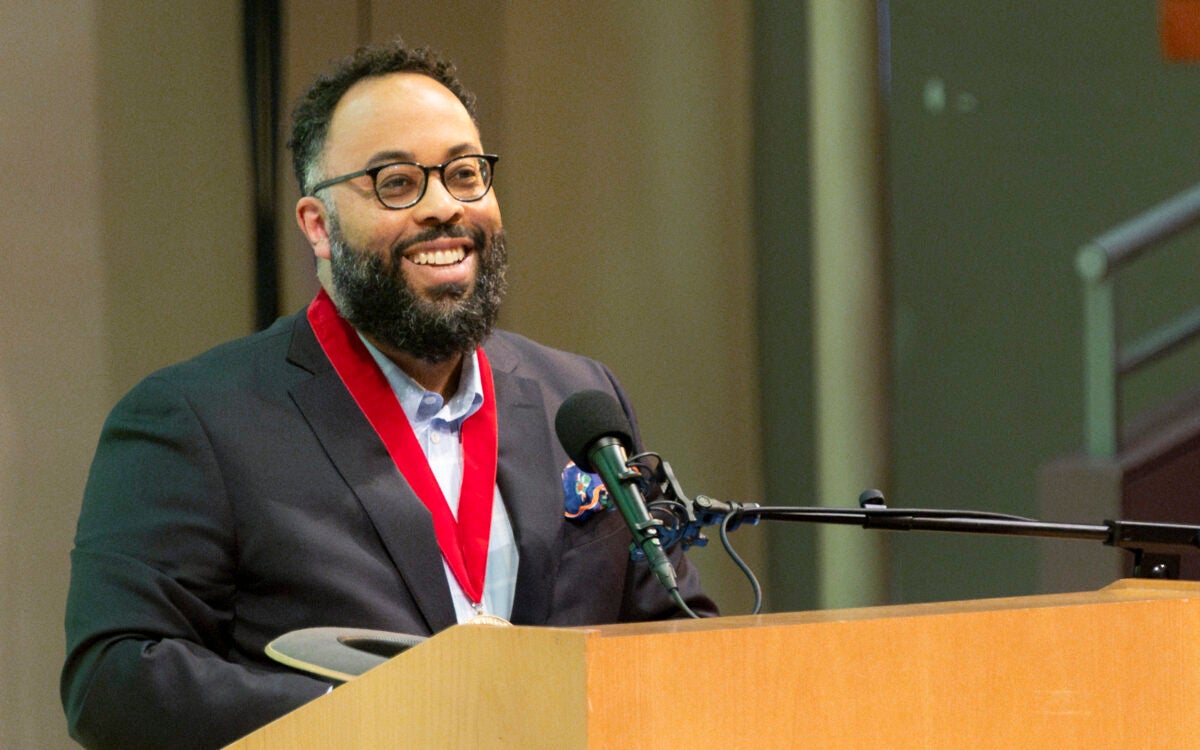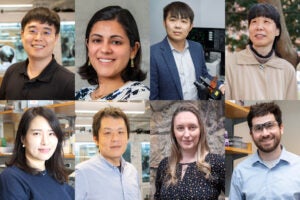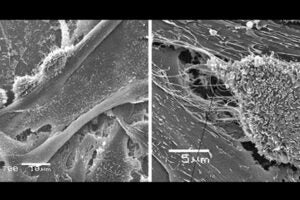Tag: Cancer
-
Nation & World
Cocoa for pleasure — and health?
A study by Harvard Medical School faculty members at Brigham and Women’s Hospital is exploring the health benefits of cocoa in a massive, 18,000-person study that may provide answers hinted at in smaller studies.

-
Nation & World
Fresh ways to fight cancer
Cancer patients have new weapons on their side, provided by targeted drug therapy and, more recently, immune therapy. Now, the recent discovery of large numbers of noncoding RNA that are active in disease provides a new opportunity to both understand and fight cancer, according to Pier Paolo Pandolfi, professor at Harvard Medical School and director…
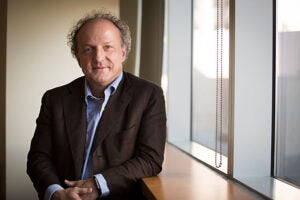
-
Nation & World
New approach to cancer treatment carries success with caveat
Restoring the cancer-killing zeal of T cells is being seen as one of the most successful new approaches to cancer treatment in nearly a decade, although researchers note it has shown effectiveness in only about a quarter of cases.
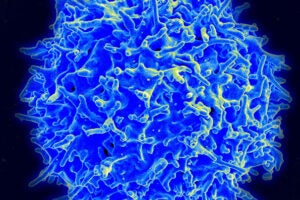
-
Nation & World
Cervical cancer screening could be less frequent, start later
A Harvard Chan School study suggests that relaxing current U.S. guidelines could provide greater health benefits with less harm and for less money in women who are vaccinated against human papillomavirus.
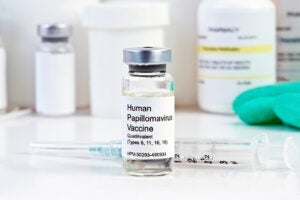
-
Nation & World
Prospect of shorter treatment and cure for chronic myelogenous leukemia
Chronic myelogenous leukemia (CML) is a slowly progressing type of blood cancer that develops in the bone marrow. Researchers discovered that CML stem cells die in response to inhibition of a protein called Ezh2. Drugs that target the protein are currently being tested in clinical trials for other cancers.

-
Nation & World
William Kaelin wins Lasker Award
Harvard Medical School Professor William G. Kaelin Jr. was named the winner of the 2016 Lasker Award for Medical Research, America’s most prestigious biomedical award. He was honored for his work in the root causes of cancer.
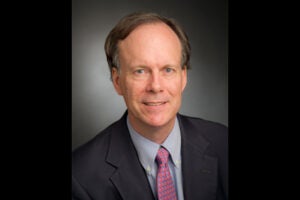
-
Nation & World
Aspirin found to reduce overall cancer risk
An analysis of data from two long-term epidemiologic studies has found that regular use of aspirin significantly reduces the overall risk of cancer, an effect that primarily reflects a lower risk of colorectal cancer and other tumors of the gastrointestinal tract.

-
Nation & World
High poverty’s effect on childhood leukemia
Children with acute lymphoblastic leukemia who live in high-poverty areas are substantially more likely to suffer early relapse than other patients, according to a new study.

-
Nation & World
When one twin gets cancer, other faces higher risk
A large new study of twins has found that a person whose twin is diagnosed with cancer stands an increased risk of also developing a form of cancer.

-
Nation & World
A fuller picture of cancer
A research team led by Martin Nowak has developed a model that captures both the shape and speed of tumor growth.
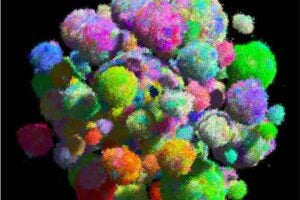
-
Nation & World
Improved accuracy in genome editing
A team of scientists has engineered a form of the genome-editing protein Cas9 that can be controlled by a small molecule and offers improved DNA specificity.
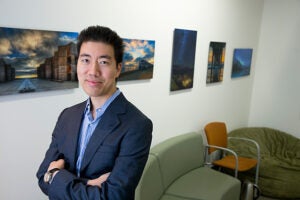
-
Nation & World
Vitamin D protects some against colorectal cancer
A new study by investigators at Dana-Farber Cancer Institute demonstrates that vitamin D can protect some people with colorectal cancer by perking up the immune system’s vigilance against tumor cells.

-
Nation & World
Imaging captures how blood stem cells take root
Harvard-affiliated researchers have provided a see-through zebrafish and enhanced imaging that offer the first direct glimpse of how blood stem cells take root in the body to generate blood.
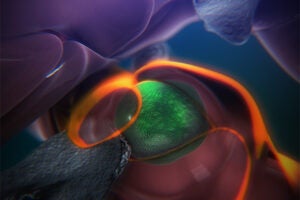
-
Nation & World
Precancerous state found in blood
Harvard researchers have uncovered an easily detectable, “premalignant” state in the blood that significantly increases the likelihood that an individual will go on to develop blood cancers such as leukemia, lymphoma, or myelodysplastic syndrome.
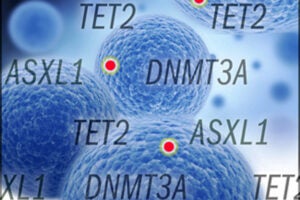
-
Nation & World
Gene test aids cancer profile
A new genetic test developed by Harvard Medical School physicians at the Dana-Farber/Brigham and Women’s Cancer Center checks cells of leukemia and other blood cancers for 95 genetic mutations, providing a quick genetic profile that physicians can use to make treatment decisions.
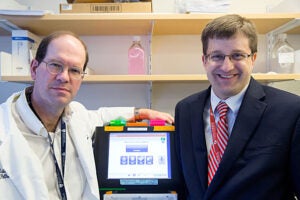
-
Nation & World
Antibody halts cancer-related wasting condition
New research raises the prospect of more effective treatments for cachexia, a profound wasting of fat and muscle that occurs in about half of all cancer patients, increasing their risk of death. Harvard Professor Bruce Spiegelman demonstrated that symptoms of cachexia in mice improved when given an antibody that blocked the effects of a protein…
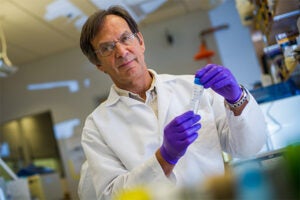
-
Nation & World
A malignant ‘switch’ in breast cancer
A team of researchers led by David J. Mooney, Robert P. Pinkas Family Professor of Bioengineering at the Harvard School of Engineering and Applied Sciences, has identified a possible mechanism by which normal cells turn malignant in mammary epithelial tissues, those frequently involved in breast cancer.
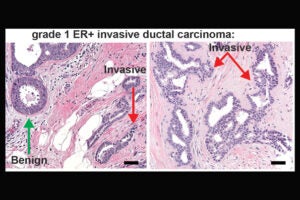
-
Nation & World
Partners, from grade school to Medical School
Fraternal twins Rosh and Roshan Sethi have shared much of their lives, including at Yale as undergraduates and sharing an apartment while enrolled at Harvard Medical School. Now preparing to graduate, they’re anticipating diverging careers, with Roshan exploring radiation oncology and Rosh head and neck surgery.
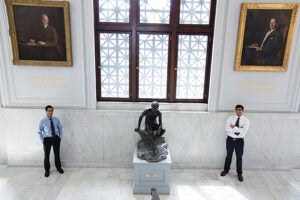
-
Nation & World
Solving the problem of shape-shifters
Investigators at Harvard-affiliated Massachusetts General Hospital (MGH) may have found a way to solve a problem that has plagued ligand-mimicking integrin inhibitors, a group of drugs that have the potential to treat conditions ranging from heart attacks to cancer metastasis.
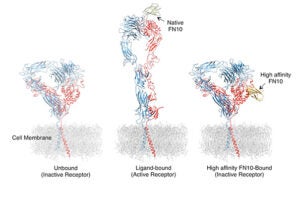
-
Nation & World
Fighting disease on a global scale
The idea that the wave of diabetes, heart disease, and cancer breaking over the world is largely the result of wealth and inactivity is not only wrong, it’s counterproductive, says a Harvard research fellow who recently founded a nonprofit organization to fight disease.
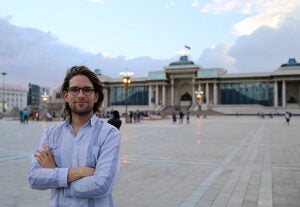
-
Nation & World
A tiny, time-released treatment
Targeted nanotherapy is the wave of the medical future, according to Omid Farokhzad, a Harvard Medical School and Brigham and Women’s Hospital researcher who has two nanoparticle-based therapies in clinical trials and a slew of ideas for new ways to put the tiny capsules to work for human health.
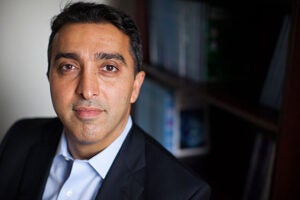
-
Nation & World
Cancer vaccine begins Phase I clinical trials
A cross-disciplinary team of Harvard scientists, engineers, and clinicians announced Sept. 6 that they have begun a Phase I clinical trial of an implantable vaccine to treat melanoma, the most lethal form of skin cancer.
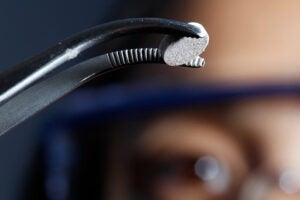
-
Nation & World
New plan of attack in cancer fight
Harvard Professor Martin Nowak and Ivana Bozic, a postdoctoral fellow in mathematics, show that, under certain conditions, using two drugs in a “targeted therapy” — a treatment approach designed to interrupt cancer’s ability to grow and spread — could effectively cure nearly all cancers.
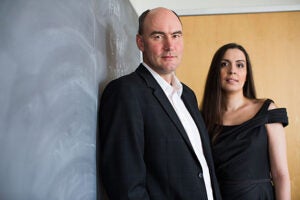
-
Nation & World
Postdoc wins Runyon Fellowship
Michael A. Cianfrocco, a postdoctoral fellow in molecular and cellular biology, has been named a fellow by the Damon Runyon Cancer Research Foundation.
-
Nation & World
Developing cancer drugs
Harvard Stem Cell Institute researchers have identified in the most aggressive forms of cancer a gene known to regulate embryonic stem cell self-renewal, beginning a creative search for a drug that can block its activity.
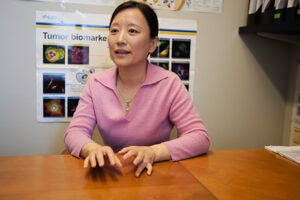
-
Nation & World
Cantor: Fund medical research
U.S. Rep. Eric I. Cantor, the House majority leader, embraced immigration reform, education changes, and medical research funding during a speech at the Harvard Kennedy School.

-
Nation & World
Fighting a global menace
Students at the Harvard School of Public Health are joining forces to draw attention to World Cancer Day on Feb. 4, organizing a symposium of experts to talk about the problem and collecting signatures for a declaration of cancer-related global health priorities.
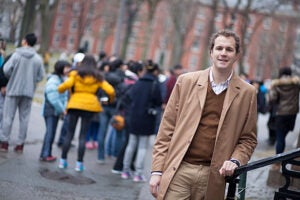
-
Nation & World
Extra chemo could be answer
Researchers have found that young patients with an aggressive form of leukemia who are likely to relapse after chemotherapy treatment can significantly reduce those odds by receiving additional courses of chemotherapy.
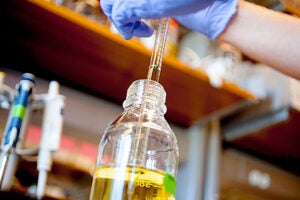
-
Nation & World
The narrative of cancer
Medical experts are coming to see cancer not as a disease of cells or even of genes, but as an “organismal disease,” Siddhartha Mukherjee, author of the Pulitzer Prize–winning cancer history “The Emperor of All Maladies,” told a Harvard Medical School audience on Oct. 11.
